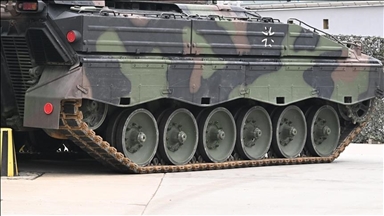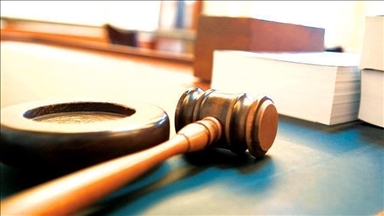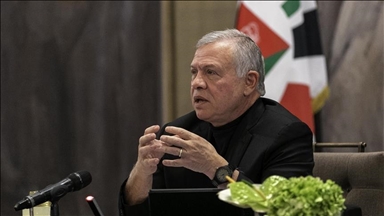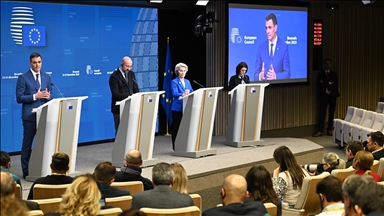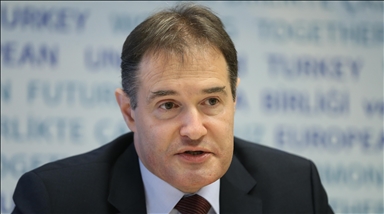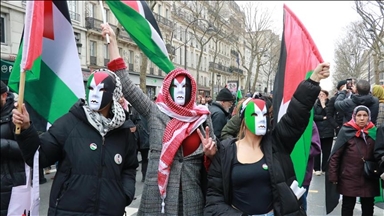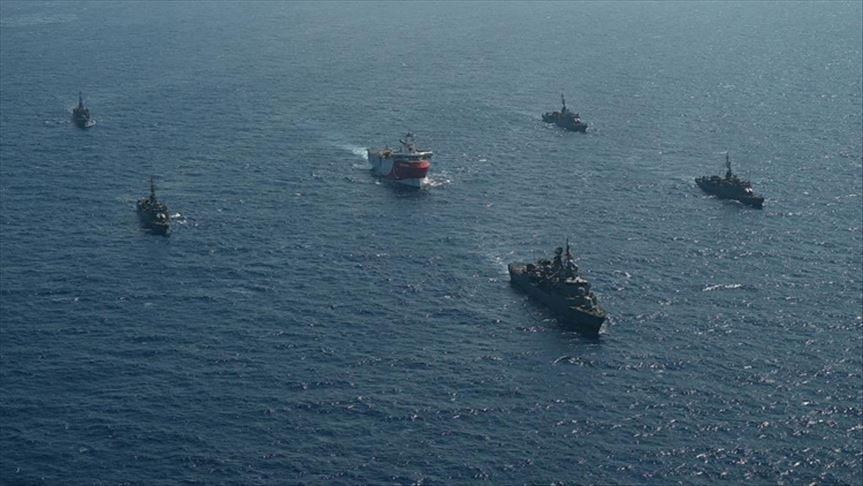
BRUSSELS
The distribution of exclusive economic zones in the Eastern Mediterranean could be improved and made entirely fair for Turkey, said Koert Debeuf, former advisor to the Belgian prime minister.
In an interview with Anadolu Agency, the expert on Middle East politics argued that Greek claims based on the exclusive economic zone of its islands are disproportionate compared to the length of the Turkish coast in the Eastern Mediterranean.
“I am not talking about legal disputes or the difference between continental shelves, territorial waters or exclusive economic zone as such. I just think that Turkey has a point saying that it has less sea than it actually deserves” given the “large economic interests at stake”, he explained.
Turkey resumed energy exploration earlier this month in the Eastern Mediterranean after Greece and Egypt signed a controversial maritime delimitation deal.
Greece and other countries have tried to box in Turkey’s maritime territory and energy exploration rights, despite no country having a longer coastline on the Mediterranean.
Turkey has consistently opposed Greek efforts to declare a huge exclusive economic zone, violating the interests of Turkey, the country with the longest coastline in the Mediterranean.
Ankara has also said energy resources near the island of Cyprus must be shared fairly between the Turkish Republic of Northern Cyprus (TRNC) -- which has issued Turkish state oil company Turkish Petroleum a license -- and the Greek Cypriot administration of Southern Cyprus.
The European Union has so far taken a law-based approach reminding Turkey of abiding by international rules.
But according to Debeuf, a political solution is needed before the parties go to court because the Greek-Turkish dispute over the Eastern Mediterranean subscribes into a wider geopolitical context.
Libya
In his recent articles published by newspapers De Standaard and EUobserver, the researcher claimed that the division between the two main political alliances of the Middle East -- Turkey, Qatar, the Muslim Brotherhood and Iran on the one hand, and Saudi Arabia, Egypt, the UAE and Israel on the other -- has a potential to break unity among the EU member states.
“One of the reasons why there is no progress in Libya for about six years is that Italy and France support different sides. They do it for mainly economic reasons, hoping to get some of the oil contracts in Libya,” he explained.
“In my opinion, France’s outspokenly aggressive approach towards Turkey regarding the East Mediterranean has a lot to do with Libya. I don’t think the conflict around Crete would have gone so far if France hadn’t felt threatened by the losses of [warlord] Khalifa Haftar who they have been supporting so far,” Debeuf said.
Following the ouster of late ruler Muammar Gaddafi in 2011, Libya's new government was founded in 2015 under a UN-led political deal.
Libya's internationally recognized government has been under attack by warlord Haftar's forces since April 2019, with more than 1,000 killed in the violence.
With Turkish support, Libya’s government has recently turned the tide against the forces of Haftar, while stressing that there is no military solution for Libya.
Debeuf said he doesn’t “see an EU or NATO-wide support for the Greek and French position on the Eastern Mediterranean.”
“The fact that NATO hasn’t been willing to condemn Turkey on the Eastern Mediterranean or even concerning the standoff between the French and Turkish ships, also means that France and Greece are exaggerating. It isn’t worth to only blame the Turks,” he pointed out.
Debeuf is hopeful that Germany will continue to lead the mediation in the Libyan conflict, as well as between Athens and Ankara.
At the same time, he is convinced that the Turkish-Greek dispute could only be solved on a higher political level, with the involvement of the EU or the United Nations.
Anadolu Agency website contains only a portion of the news stories offered to subscribers in the AA News Broadcasting System (HAS), and in summarized form. Please contact us for subscription options.


